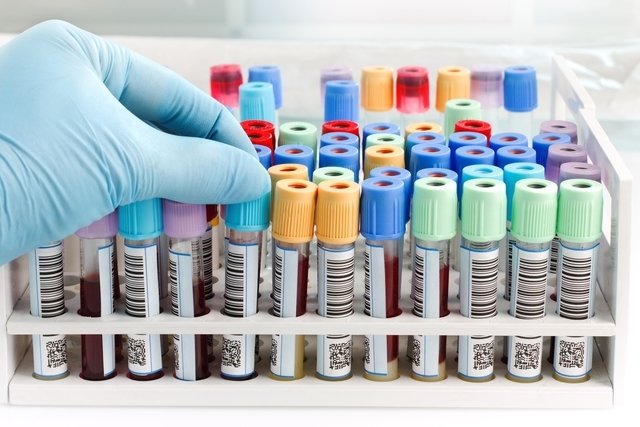The albumin test is carried out to evaluate the levels of albumin circulating in the blood, being useful for evaluating the person’s nutritional status and identifying possible kidney or liver problems.
Albumin is the protein present in the highest concentration circulating in the blood and is produced in the liver. This protein is necessary to transport hormones and nutrients throughout the body and to regulate pH and maintain the body’s osmotic balance, which happens by regulating the amount of water in the blood.
Blood albumin measurement is usually requested together with urine albumin measurement, as it helps to identify changes in kidney function.

What is it for
The albumin test is requested by the doctor to assess the person’s nutritional status and help diagnose kidney and liver diseases, in addition to being requested before surgery to check the person’s general condition and assess whether it is possible to perform the surgical procedure.
Normally, blood albumin measurement is requested along with other tests, such as urea, creatinine and total blood protein levels, especially when there are symptoms of liver disease, such as jaundice, or kidney disease. Understand what the total blood protein test is and how it is done.
How is done
Fasting is not necessary to perform the albumin test and is carried out by analyzing a blood sample collected in the laboratory.
It is important that the person indicates the use of medications, such as anabolic steroids, insulin and growth hormone, for example, as they can interfere with the test results and, therefore, must be taken into consideration at the time of the analysis.
Reference values
Normal albumin values may vary according to the laboratory in which the test is performed and also according to age.
In addition to varying according to the laboratory and the person’s age, blood albumin values can also be influenced by the use of medications, long-term diarrhea, burns and malnutrition.
What the results mean
Albumin can be high or low due to some situations:
high albumin
The increased value of albumin in the blood, also called hiperalbuminemia, is usually related to dehydration, which can be caused by diarrhea, for example. This happens because dehydration causes a decrease in the amount of water present in the body, which changes the proportion of albumin and water, indicating a higher concentration of albumin in the blood.
Decreased albumin
The decreased albumin value, also called hypoalbuminemiacan occur due to several situations, such as:
- Kidney problemsin which there is increased excretion in the urine, such as nephrotic syndrome and chronic renal failure;
- Intestinal changesin which there is a large loss of proteins, including albumin, through the gastrointestinal tract, which can occur in diseases such as ulcerative colitis, Crohn’s disease and celiac disease;
- Malnutritionin which there is no correct absorption or adequate intake of nutrients, interfering with the absorption or production of albumin;
- Serious diseasesas it alters the distribution of albumin between the intra- and extravascular spaces, affecting its production in the body and increasing its degradation;
- Inflammationssuch as heart failure, burns, pancreatitis or more delicate surgery;
Furthermore, reduced albumin levels in the blood can also be indicative of liver problems, in which there is a decrease in the production of this protein. Therefore, the doctor may request additional tests to assess the health of the liver. See which tests evaluate the liver.
Bibliography
- NATIONAL CENTER FOR BIOTECHNOLOGY INFORMATION. Hypoalbuminemia. Available at: <https://www.ncbi.nlm.nih.gov/books/NBK526080/>. Accessed on Jul 22, 2022
- NATIONAL CENTER FOR BIOTECHNOLOGY INFORMATION. Serum Albumin and Globulin. Available at: <https://www.ncbi.nlm.nih.gov/books/NBK204/>. Accessed on Jul 22, 2022

Sign up for our newsletter and stay up to date with exclusive news
that can transform your routine!
Warning: Undefined array key "title" in /home/storelat/public_html/wp-content/plugins/link-whisper-premium/templates/frontend/related-posts.php on line 12
Warning: Undefined array key "title_tag" in /home/storelat/public_html/wp-content/plugins/link-whisper-premium/templates/frontend/related-posts.php on line 13



